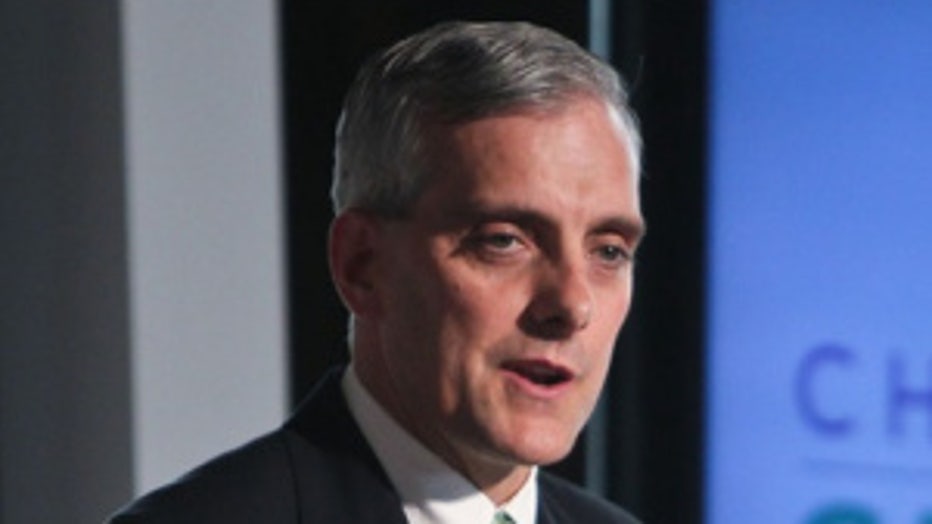White House says 'scope and scale' of aid to Syrian rebels may grow
By Neela Banerjee
Los Angeles Times
WASHINGTON — White House Chief of Staff Denis McDonough said Sunday that “the scope and scale” of assistance to Syrian rebels will expand, based on evidence that the Assad government is gaining ground in the protracted civil war and that it may have used chemical weapons in the conflict.

White House chief of staff Denis McDonough
Speaking on CBS News’ “Face the Nation,” McDonough did not say whether arms shipments to Syrian rebels would include artillery and other heavy weaponry that could help reduce the military regimes advantage. In the shadow of Iraq and Afghanistan, the United States has to tread carefully, McDonough said.
“We have to be very discerning about what's in our interest and what outcome is best for us, and the prices that we're willing to pay to get to that place,” he said. “We've rushed to war in this region in the past; we're not going to do it here.”
Republicans such as Michigan Rep. Mike Rogers, chairman of the House Intelligence Committee, faulted the administration for not providing the kind of detailed plan needed to get congressional approval for the military aid to Syria.
“The administration needs to come up to Congress and make a comprehensive case. What is the plan? Where are we going on Syria? And what do you want to accomplish?,” Rogers said on “Face the Nation,” after McDonough spoke. “Some of the things that they've told the Intelligence Committee in the past doesn't comport with what they're presenting as the direction they want to go. It seems to me they have a great media strategy; they don't have a great Syrian strategy.”
The administration and Republicans did close ranks in defending the National Security Agency’s now not-so-secret electronic surveillance efforts at home and abroad, asserting that the programs were legal and had adequate oversight.
McDonough said President Obama did not believe he had violated the privacy of any Americans, but that if there are “problems” within the surveillance programs, they had to be addressed.
“We find ourselves communicating in different ways, but that means the bad guys are doing that as well,” McDonough said. “So we have to find the right balance between protecting our privacy, which is sacrosanct in the president's view, and protecting the country from the very real risks and threats that we face.”
A normally harsh critic of the administration, former Vice President Dick Cheney backed the use of widespread surveillance and said such an effort would have been useful before the Sept. 11, 2001 attacks.
"As everybody who's been associated with the program's said, if we had had this before 9/11, when there were two terrorists in San Diego — two hijackers — had been able to use that program, that capability, against that target, we might well have been able to prevent 9/11," Cheney said on "Fox News Sunday."

